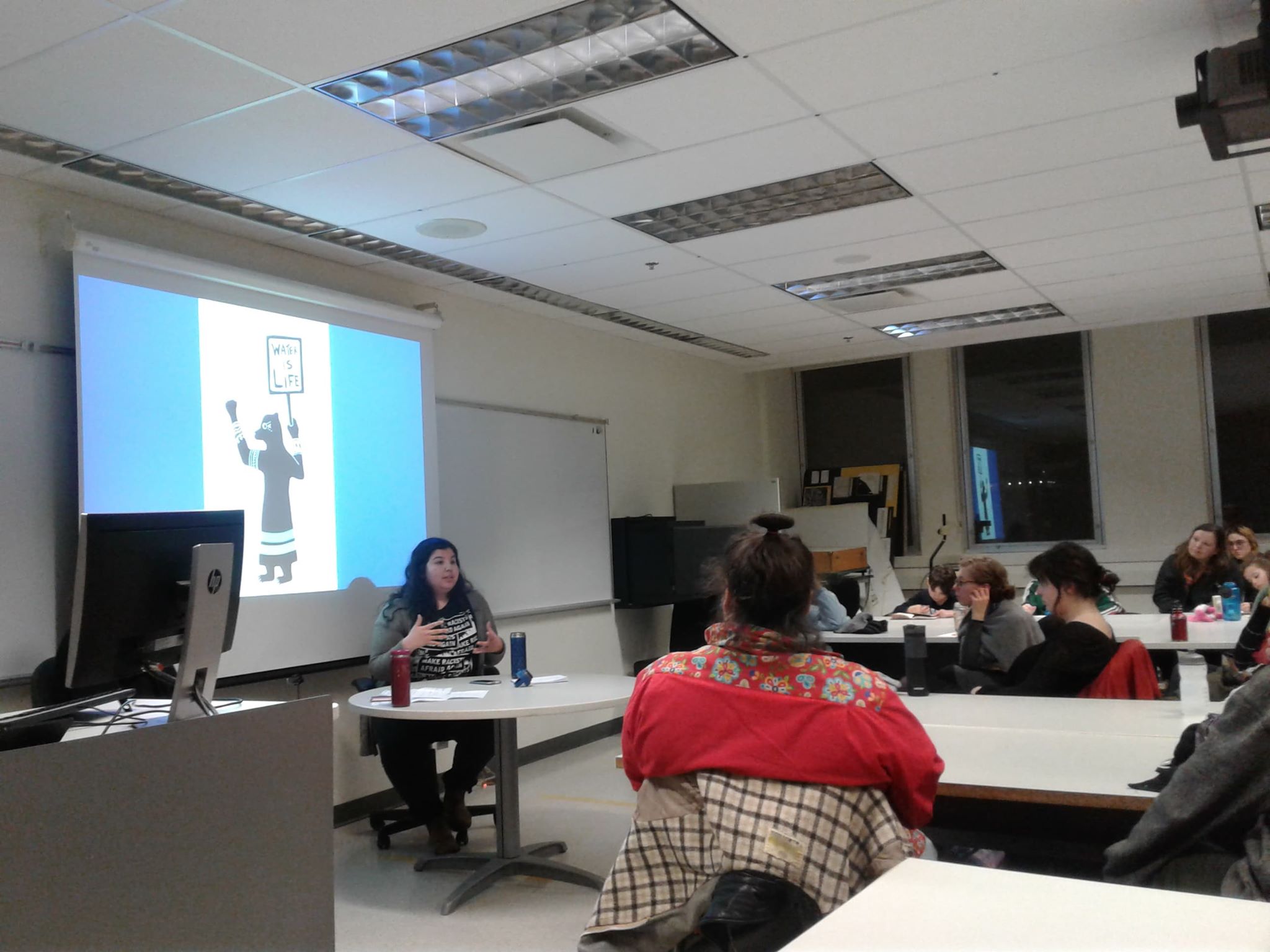Grassroots Indigenous organization seeks to increase public awareness of the oil industry’s environmental impact
“We’re all sharing a house that’s on fire and everyone’s looking at each other saying they didn’t start it,” said Vanessa Gray.
On Feb. 27, Gray’s voice resonated throughout a classroom in the Hall building of Concordia’s downtown campus, with attendees listening attentively in their seats. Gray is Anishinaabe kwe from the Aamjiwnaang First Nation, located outside of Sarnia, Ontario—also known as Canada’s Chemical Valley.
Gray founded the grassroots organization Aamjiwnaang & Sarnia Against Pipelines (ASAP) to increase public awareness of the issue in her hometown and to pressure the federal government to stop the perpetuation of the oil industry.
According to ASAP’s research, 40 per cent of Canada’s petrochemical industry takes place within a 50-kilometer radius of Aamjiwnaang, with over 60 oil refineries and chemical plants currently in operation. These refineries and plants are responsible for the contamination of the land, air and water of the community, which has severe negative impacts on their health and way of life. According to a 2011 report by the World Health Organization, Sarnia’s air is the most polluted air in Canada. In a zine called Canada’s Toxic Chemical Valley, written by the Montreal contingent of Aamjiwnaang Solidarity, Gray said that 39 per cent of her community needs puffers to breathe properly. In the zine, it was also said that the animals who are living off the land in the area are mutated, and are not supposed to be hunted to eat.
Although the Chemical Valley case is extreme, it highlights the damaging effects that oil refineries and pipelines have on surrounding communities and on human life.
The organizer, land defender and educator spoke about her experience as an Indigenous woman in the environmental justice movement, most recently regarding the Wet’suwet’en situation, in relation to her work with Chemical Valley.
Gray said that for Indigenous peoples, having access to their own land, free of contaminants that come from pipelines, is all about survival. “But that is the greatest threat to the Canadian economy that we see today,” stated Gray.
The event was filled with non-Indigenous attendees asking Gray what they could do as allies to support the direct action Indigenous peoples across Canada are taking, in a show of solidarity with land defenders of Wet’suwet’en.
In response, Gray simply stated non-Indigenous folks shouldn’t’ be asking her what to do.
It’s your government that has the guns pointed at us,” said Gray.
Gray explained it’s not easy for her to do this work in educating non-Indigenous people, but she’s doing it for a reason—to lay out the situation, and to communicate that Indigenous people and settlers have different roles in this struggle.
“I’m handing a huge responsibility to you, now that you know,” said Gray. “I have my roles, and you have yours. Don’t try to make me the one to walk you through decolonization, because it means something different to me than it does to you.”
How settler allies can help support Wet’suwet’en land defenders
The facilitator of the event, Jen Gobby of Climate Justice Montreal said the Wet’suwet’en protests against the pipeline are the most powerful current example of climate activism in Canada. Gobby continued that this is the moment for non-Indigenous allies to support it in any way that they can.
Gobby said this could mean following the Unist’ot’en supporter protocols for solidarity action like sending resources, fundraising, raising awareness, and dismantling the colonial narrative of the local climate movement.
Juhi Sohani of Climate Justice Montreal added that the message coming from the front lines is clear: people need to be out there alongside the Indigenous land defenders, blocking infrastructure and taking as much direct action as possible.
Sohani said that talks, such as this one with Gray, are crucial. Sohani explained that every day, settlers should be learning as much as they can in order to hold themselves and the Canadian government accountable for the ongoing colonization and genocide of Indigenous people in this country.
“I think it’s really important for us as non-Indigenous people to feel guilty, and to grapple with that guilt because it’s really important that we come here and we feel uncomfortable,” said Sohani.
Sohani continued that through this, settlers can start to unpack the realization that they as settlers implicitly subscribe to capitalism and are benefitting from it in a multitude of ways because of the current way of life of the majority—and could ultimately put this knowledge to good use.
As Gray said, “we need to figure out a way to make this better for our future generations. We have to look seven generations ahead, because that’s what the lands need—is sustainability.”
Photo by Marissa Ramnanan




